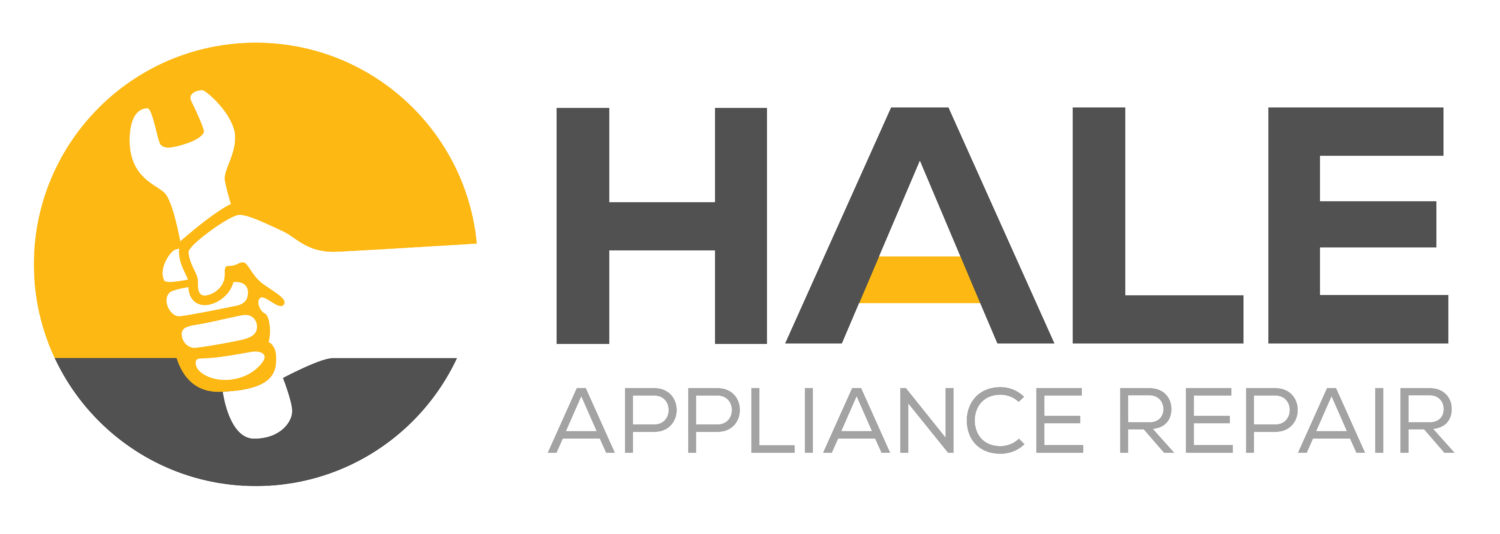Appliance Safety Tips
The appliances inside a home can make life much easier, but when you operate appliances unsafely, they might produce noticeable health risks. You should protect your appliances and make sure they will not turn into hazards by adhering to these home appliance safety suggestions from Hale Appliance Repair.
The professional tips below can help prevent fires and injuries related to home appliances. That being said, hazards can still occur. If a home appliance breaks or malfunctions and becomes a danger, call a professional appliance repair CITY.
Install GFCI Outlets in Damp Locations in a Home
Kitchens, laundry rooms, basements, bathrooms, mud rooms, garages and outdoor areas are all susceptible to possible wetness or dripping water. Of course, electricity and moisture don’t go together, that means power cords and wires should be plugged into ground-fault circuit interrupters (GFCIs).
This special type of electrical outlet will prevent electrocution by tripping the circuit if any inconsistencies in power arise.
If you don’t already have GFCI outlets in wet rooms inside and around your home, it is time to install them or call an electrician in CITY. Then, for further safety measures, follow the warnings of manufacturer appliance manuals that note that an appliance is not designed for outdoor use.
Wires, Electronics & Outlets Away From Wet Areas
Many appliances are manufactured for the outdoors, like charcoal and gas grills, for example. If you use any electrical appliances outdoors – including refrigerators, dishwashers, freezers and ice makers, electric tools and others – ensure that all of the outlets and cords are 100% dry. Weatherproof electronics can help with this, combined with GFCI outlets with water-tight gaskets.
Extension Cords are a Momentary Answer
An extension cord poses several risks, including:
The likelihood of loose connections that might cause sparks and start a fire.
The likelihood of power inconsistencies that might damage the appliance.
Increased susceptibility to water penetration that can cause electrocution.
The likelihood of cords overheating and turning into a fire hazard when an inadequate extension cord is paired with a high-power appliance.
When choosing an extension cord for short-term use, ensure that it’s the right gauge for the appliance in question. The smaller the gauge, the greater the size for the cord. For instance, a simple electrical extension cord for a lamp will have a 16-gauge wire while a larger cord for a air conditioner unit uses a 12-gauge wire.
The length is also crucial. The longer the cord is, the more electricity is gone on the way, something known as voltage drop. Short cords are recommended for electric tools and similar equipment.
Read the Operating Manual for Any Type of Appliance You Purchase
It is obvious to assume that you know how to use your brand new washing machine or dishwasher without reading the manual, but consulting the manufacturer instructions is important for a lot of reasons:
You should find out whether your home’s wiring is sufficient to support the new appliance. You might need to install a circuit to stop overloading your existing ones.
You learn more about complicated features you wouldn’t have otherwise have known about.
You discover if the appliance is safe for outdoor locations or not.
You avoid the frustration that can sometimes come from attempting to use a home appliance without instructions!
Unplug Small Appliances in Your Home if You Are Not Using Them
You can reduce unnecessary energy consumption by unplugging small appliances when not in use. This is because small appliances sometimes include LED lights, clocks and other features during standby times.
Unplug TVs, computer monitors, routers, video game consoles, phone chargers and more to cut back on unnecessary energy consumption. But remember, it’s a good idea to keep DVRs and similar items plugged in to prevent missing out on their automatic background features.
For more tips on ways to use appliances safely, or to schedule a local appliance repair service, please contact Hale Appliance Repair. We can repair all major home appliances!
OTHER RESOURCES:
Appliance Repair Cost
DIY Appliance Repair Tips
Repair or Replace Appliances
Refrigerator Parts
Home Services Campaign Disclaimer: This site is a free service to assist homeowners in connecting with local service providers. All contractors/providers are independent and this site does not warrant or guarantee any work performed. It is the responsibility of the homeowner to verify that the hired contractor furnishes the necessary license and insurance required for the work being performed. All persons depicted in a photo or video are actors or models and not contractors listed on this site.
Copyright ©2025 Hale Appliance Repair
